A lot of homebuyers in Canada might not realize exactly who’s on their side when it comes to a real estate deal. It’s easy to assume everyone involved is working for you, but that’s not always the case. It is key to understand the difference between a realtor vs real estate agent—they aren’t the same, even though many people mix them up.
If you’re buying or selling a home, or even thinking about becoming a real estate professional in Canada, you’ve probably asked yourself:
“What’s the difference between a real estate agent, a broker, and a Realtor®?”
I get it—what is a real estate broker and who is a broker in real estate may sound like small distinctions, but they mean very different things.
Whether you’re a client trying to choose the right professional or a student exploring career options, this guide is for you.
Let’s clear things up on real estate agent vs broker.
Breaking Down Real Estate Terminology: Agent, Broker, and Realtor®
Understanding the difference between a realtor vs real estate agent is important to know who’s working for you.
Whether you’re buying or selling, having the right expert with the right experience can make a huge difference in your transaction.
1. Real Estate Agent (Salesperson)
A real estate agent is a professional who helps people buy, sell, or rent properties. They must work under a real estate broker to operate legally.
How to become a Real Estate Agent in Canada:
- Ontario: Finish the OREA (Ontario Real Estate Association) courses and pass the licensing exam.
- British Columbia: Get licensed through the Real Estate Council of BC.
Quick Tip: You can’t practice real estate in Canada without a license from your province.
Earnings:
Real estate agents typically earn between 50% to 70% of the commission. The remaining portion goes to the brokerage. The amount depends on the property’s final sale price.
2. Real Estate Broker
Many people ask: What is a Real Estate Broker? A real estate broker is someone who has completed extra training and can work on their own or run their own brokerage. They have more experience and more responsibility than an agent.
Who is a Broker in Real Estate?
Brokers can run their own business, supervise agents, and are responsible for overseeing transactions. They also carry more legal liability.
Key Differences between a real estate agent and a broker :
- Can open and manage a real estate brokerage.
- Supervise and support real estate agents.
- Have more legal responsibility.
After knowing what a broker is in real estate, think of a ladder:
Real Estate Agent → Real Estate Broker → Brokerage Owner
3. Realtor® (Trademarked Term)
A Realtor® is NOT a job title but a trademarked term used by members of the Canadian Real Estate Association (CREA). It’s a special status for agents or brokers who adhere to specific standards.
Realtor® Requirements:
- Must be a licensed real estate agent or broker.
- You must be a member of CREA.
- Must follow a strict Code of Ethics.
In the U.S., Realtors® are part of the National Association of Realtors (NAR). In Canada, they are part of CREA.
Realtor vs real estate agent—what’s the difference? All Realtors® are agents or brokers, but not all agents or brokers are Realtors®.
Overview Comparison: Real Estate Agent, a Broker, and a Realtor®
| Title | Can They Work Independently? | Licensing/Training | Earnings |
| Real Estate Agent | No, must work under a broker | Complete licensing through provincial associations (OREA, Real Estate Council of BC) | 50%-70% of the commission earned |
| Real Estate Broker | Yes, can own and operate a brokerage | Extra training and exams beyond agent qualifications. | Earns commission and manages agents |
| Realtor® | Yes, if they are also a licensed agent or broker | Must be a member of CREA and follow strict ethical guidelines | Same as agent/broker earnings, but with added reputation benefits |
Real Estate Broker vs Agent: 7 Key Differences

If you’re getting into real estate, it’s crucial to understand the differences between a broker vs real estate agent.
Even though they seem similar, each one has a unique role and responsibilities. Here’s a simple breakdown to highlight the differences.
1. Education
- Real Estate Agent:
A real estate agent typically needs to complete pre-licensing courses in their province to get started. This usually includes some basic training on real estate laws and transactions. - Real Estate Broker:
To become a real estate broker, you need to go a step further. Brokers must have 2-3 years of additional experience as an agent and then pass a broker exam. They have more in-depth knowledge of the market and the legalities involved.
2. Legal Responsibility
- Real Estate Agent:
An agent works under the supervision of a broker. This means their legal responsibility is shared with the broker, and they don’t carry as much risk. - Real Estate Broker:
A broker has more legal responsibility. They can supervise agents and handle more complex transactions. They are fully responsible for what happens in their brokerage.
3. Income Potential
- Real Estate Agent:
Real estate agents typically make between $50,000 to $150,000 per year. However, it depends on how many deals they close. Their income is often based on commission, which can vary. - Real Estate Broker:
Brokers can earn significantly more—anywhere from $100,000 to $500,000+ per year. This is because they not only earn their commissions but also get overrides from agents they supervise, or in some cases, full commissions.
4. Transaction Limits
- Real Estate Agent:
An agent must work under a broker. They cannot independently handle all aspects of a transaction on their own. - Real Estate Broker:
A broker can operate independently and handle their transactions without needing to work under someone else.
5. Career Freedom
- Real Estate Agent:
Agents must join a brokerage to work in real estate. They can’t run their own business unless they become a broker. - Real Estate Broker:
Brokers have more freedom and can open and run their own brokerage. They have the option to build their team of agents.
6. Commission Structure
- Real Estate Agent:
Agents typically work on a commission split (for example, 70/30), where most of the commission goes to the broker and the agent gets a smaller portion. - Real Estate Broker:
Brokers have the potential to earn the full commission from deals they close, or they may receive an override from agents they supervise. They have more control over the commission structure.
7. Risk Level
- Real Estate Agent:
Since agents are supervised by brokers, their liability is lower. If something goes wrong in a transaction, the broker is more responsible. - Real Estate Broker:
Brokers face higher liability because they not only handle their transactions but also supervise agents. They’re more exposed to legal and financial risks.
Quick Comparison Between Broker vs. Real Estate Agent
| Factor | Real Estate Agent | Real Estate Broker |
| Education | Pre-licensing courses | Additional 2-3 years of experience + broker exam |
| Legal Responsibility | Supervised by a broker | Can supervise others and has higher responsibility |
| Income Potential | $50,000 – $150,000/year | $100,000 – $500,000+/year |
| Transaction Limits | Must work under a broker | Can operate independently |
| Career Freedom | Must join a brokerage | Can open/run their brokerage |
| Commission Structure | Commission split (e.g., 70/30) | Earns overrides from agents or full commissions |
| Risk Level | Lower liability | Higher liability (legal & financial) |
Exploring the Real Estate Career Path

Becoming a broker opens the door to higher earning potential and more control over your career. But it also comes with more responsibility, both legally and financially.
How to Become a Real Estate Agent in Canada?
If you’re looking to kickstart your career in real estate, here’s a simple guide to becoming an agent:
1. Take the Required Courses
Every province has its training program, so you’ll need to take courses to meet the licensing requirements. For example:
- Ontario: Complete the OREA (Ontario Real Estate Association) courses.
- Other Provinces: Look for ARELLO-certified courses.
2. Pass Your Province’s Exam
After completing your courses, you’ll need to pass the exam in your province to become officially licensed.
3. Join a Real Estate Brokerage
Once licensed, you can start working with a brokerage. This is a crucial step because you can’t practice independently as an agent.
Quick tip: Not all brokerages are the same. Ensure to choose a reputable one that offers the support and resources you need to grow.
Want to know how to join the best real estate company to work for in Canada? Check out this blog for tips on choosing the right brokerage to match your goals.
Transitioning from Agent to Broker
Once you’ve gained experience as an agent, you can level up and become a real estate broker. Here’s how:
Ontario Requirements:
- Work for 24 months as a licensed agent.
- Complete the broker program and pass the broker exam.
What Changes When You Become a Broker?
- Instead of earning a commission split, brokers can earn profits from the brokerage.
- Brokers also receive overrides from the agents they supervise, meaning you can earn a percentage of their commissions.
- Your role shifts from a transaction-focused position to a management position, where you can run your own business or supervise a team of agents.
Before jumping into real estate, it’s smart to know how much real estate agents make. Our blog explains the potential earnings and what drives agent success.
Agent vs Broker: Day-to-Day Responsibilities

In real estate, agents and brokers have different roles, even though they work closely together. Here’s a simple breakdown of their everyday tasks:
Agent Responsibilities
A real estate agent works directly with clients to help them buy, sell, or rent homes. Their main duties include:
- Showing Homes to Buyers
Agents spend time arranging and leading home tours for potential buyers.
- Hosting Open Houses
They organize open houses, giving buyers a chance to see properties without an appointment.
- Writing Offers
When a buyer is ready to make a move, the agent drafts the offer documents to submit to the seller.
- Negotiating Deals
Agents play a key role in negotiating prices and terms to make sure their client gets the best deal.
- Guiding Clients
From start to finish, agents guide clients through the buying or selling process, offering advice on pricing, market trends, and paperwork.
Broker Responsibilities
A real estate broker has an important role and oversees agents to make sure everything goes smoothly. Here’s what they do:
- Reviewing Contracts
Brokers check all contracts to ensure everything is correct and legally sound.
- Supervising Agent Deals
They oversee the work of agents, ensuring that all deals are in compliance with laws and company rules.
- Ensuring Compliance
Brokers make sure all real estate transactions follow legal requirements, ensuring everything is above board.
- Handling Audits & Legal Issues
If there’s an audit or legal problem, brokers handle it. They are responsible for making sure everything is legally right.
Your success starts with the right support. Discover leading real estate brokerages that help agents thrive through tools, coaching, and opportunities.
Real-Life Example: Ontario Broker
One Ontario broker showed just how important their job is when their team went through a surprise audit.
Because the broker had kept all the paperwork organized and made sure the agents were well-trained, the team passed the audit with no problems at all.
It’s a great example of why having a broker who knows the rules and stays on top of things can make a big difference.
Financial & Legal Differences: Agent vs Broker

When it comes to real estate careers, there are key financial and legal differences between agents and brokers. Here’s a simple breakdown:
Commission Structures
Real Estate Agents
Agents typically earn a portion of the commission from each sale, depending on the agreement with their brokerage. Some common commission models are:
- 70/30 Split: The agent keeps 70% of the commission, while the brokerage gets the remaining 30%.
- 100% Commission Model: The agent keeps 100% of the commission but pays a monthly fee to the brokerage for support services.
Real Estate Brokers
Brokers earn money from:
- Their transactions (just like agents).
- Overrides from the agents they supervise. This means they get a percentage of the commission earned by the agents in their team.
Learn what a real estate brokerage is and how it supports agents and Realtors® in closing deals and guiding clients through every transaction.
Liability Comparison
- Real Estate Agents
Agents are typically covered by the brokerage’s insurance, meaning that if there’s a mistake or issue, the brokerage usually takes care of it. - Real Estate Brokers
Brokers have more responsibility and must carry Errors and Omissions (E&O) insurance for themselves and any agents they supervise. This insurance protects them against legal claims if something goes wrong in a transaction (like missing disclosure forms).
When you compare a realtor vs real estate agent, remember that agents typically work under a broker, while brokers take on more responsibility (including legal and financial risks).
Real Estate Licensing Requirements Across Provinces
| Province | Agent Course Requirements | Broker Requirements |
| Ontario | Complete 5 OREA courses (Ontario Real Estate Association) | 2 years of experience + Complete Broker course |
| British Columbia (BC) | Complete Real Estate Trading Services program | Complete additional supervised hours |
| Alberta | Complete RECA licensing + various modules | 12 months active experience + Broker training |
Frequently Asked Questions
Can a broker also be a Realtor®?
Yes! As long as they join CREA and agree to follow the Code of Ethics.
Do I need a broker to buy a home?
Yes and no. In Canada, only a licensed broker or agent can represent you in a transaction. So while you’re working with an agent, they are still under a broker.
Conclusion
Now that you’ve got a clear picture of realtor vs real estate agent, here’s the summary:
- A real estate agent works with clients but always under the supervision of a broker.
- A real estate broker has more training, experience, and the ability to work independently.
- A Realtor® is a real estate agent or broker who is a member of CREA and follows strict ethical standards.
Still unsure about the best career path for you? Take our “Which Career Path Matches Your Goals?” quiz to quickly figure out if starting as an agent or going straight for a brokerage is the right move.
And if you need help or mentorship, get in touch with your favorite real estate brokerage in Toronto. They support you and guide you through every step of your real estate career.






